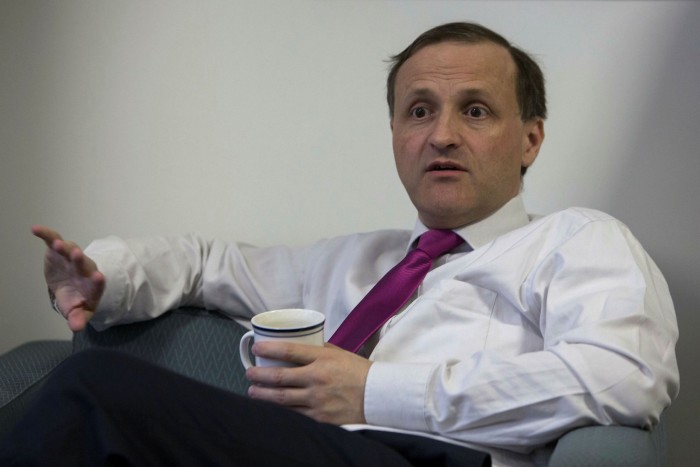Will Covid alter your retirement sequence?


Roula Khalaf, Editor of the FT, selects her favourite stories in this weekly newsletter.
For those who can afford it, “taking your pension last” has been the retirement funding sequence most favoured by wealth managers and financial advisers since pension freedoms arrived in 2015.
The new rules didn’t just give the over-55s more flexibility with their pensions, but significant inheritance tax advantages if they died without spending them — creating an incentive to work through Isas, property and other investments first.
So how could the pandemic alter this retirement sequence?
Years ago, retirement was likely to be linked to a significant birthday. Blow out the candles, and your final salary pension would kick in, or you’d trade your pension pot for an annuity.
Nowadays, retirement isn’t so much a fixed point on the calendar, but a transition — and increasingly one spanning 20 years between your mid-50s and mid-70s.
Pension freedoms were groundbreaking because they gave retirees the flexibility to stay invested during this period and beyond. Assuming you are wealthy enough to leave your pension till last, then the ups and downs of the market this year won’t have troubled you too much.
However, the less flush have found that living off the returns they “draw down” from the pot without eating into their capital too much requires substantial flexibility on their part.
Even if they resisted selling at the bottom when markets plunged this year and held on for the bounce, many have had to dial down their income expectations, and will no doubt still be worried about the long-term side effects Covid-19 will have on economic growth and world markets in the future.
Meanwhile, those who are leaving their pensions till last are worrying that paying for the pandemic could kill off the significant tax benefits driving this strategy.
Under the current rules, if you die before your 75th birthday, money in a defined contribution pension below your lifetime allowance can be passed free of tax to your beneficiaries. After 75, they will pay income tax at their highest marginal rate on money subsequently drawn down. But beware — these tax advantages could die before you do.
“The treatment of pensions on death that [former chancellor] George Osborne brought in could easily be reversed,” predicted former pensions minister Sir Steve Webb at the FT’s Rethinking Retirement webinar this week.
Removing this perk would be less politically damaging than tinkering too much with pensions tax relief, or the 25 per cent tax-free lump sum — another bedrock of retirement planning. Yet Sir Steve thinks the wealthy should be prepared for future changes.
“I’d be astonished if tax-free cash was abolished, but they might cap it at a certain figure,” he says. Further “salami slicing” of pensions benefits could limit the annual allowance carry forward rules to one year, down from the current three.
Younger people like me who are still in the accumulation phase of saving for retirement will worry about what could happen to pensions tax relief in future — and we may yet have a few years to take advantage of this.
One tax expert I chatted to this week reminded me of the phrase attributed to Winston Churchill: “Trying to tax your way out of a recession is like standing in a bucket and trying to lift yourself up by the handle.”
I fully intend to max out my £40,000 annual allowance and higher rate tax relief for as long as it lasts, and I would hope that the perk of allowing investments inside a pension to grow tax-free will remain until my own retirement “transition” begins, even if my tax-free lump sum is capped, or income tax rates rise in the intervening decades.
As the experts suggested at our webinar, I’ll also be checking the assumed retirement age of my company pension to make sure I’m not “lifestyled” out of equities before I’m ready.
Reinventing Retirement

You can watch this week’s Reinventing Retirement seminar featuring Claer Barrett and Sir Steve Webb by registering via this link: https://rethinkingretirement-live-ft-com.ezproxy.cul.columbia.edu/home
Advisers take their clients through a process of cash flow modelling to work out which assets to pull into the retirement plan and when. The flexibility of stocks and shares Isas means they play a much bigger part in funding the early years.
The enlarged £20,000 annual limit gives investors greater scope to do a “Bed and Isa”. This is the curious term for selling investments held outside tax wrappers — and thus dealing with any capital gains now before feared increases kick in — then buying the same investments within your Isa and shielding them from tax.
Increasingly, helping children and grandchildren is something advisers are factoring into retirement planning. At the event, readers and adviser panellists said the sums involved were increasing, particularly if adult children had lost their jobs during the pandemic, or ran a business that needed bailing out. Obviously, there are inheritance tax advantages to giving early.
However, the economic repercussions of the pandemic are also affecting the employment prospects of the over-50s. As redundancies rise, many fear they will be forced into a retirement they neither want, nor can afford.
Sir Steve noted the rise in the number of defined contribution pots being cashed in, and wondered if this would be followed by a corresponding rise in final salary pension transfers. You’ll need to take independent financial advice if the value of your benefits is greater than £30,000, but concerns about mis-selling and the rising cost of professional indemnity insurance are making it hard to find an adviser — so when you do, it will cost you.
Nevertheless, the huge income multiples on offer if you do cash in are tempting — but they’re high for a reason. It is very hard to generate a regular income from your retirement pot without worrying about it constantly.
For this reason, advisers say using part of your pot to buy an annuity in your late 70s or 80s is becoming a more common part of the retirement sequence.
Annuity rates may be terrible, but the older you get, the better the rates will be. And you don’t have to trade in the whole of your pot — maybe just enough to cover your fixed costs, hedge these against inflation and dispel any fears of a future market crash — referred to as “passing the 3am test”.
I hope all of this gives you some food for thought when it comes to your own retirement planning. And remember, the great thing about making a plan is that it can be adapted. Whatever you’re planning to leave until last, it pays to think through the consequences first.
Claer Barrett is the FT’s consumer editor, and a financial commentator on Eddie Mair’s LBC drive-time show, on weekdays between 4-7pm: claer.barrett@ft.com; Twitter @Claerb; Instagram @Claerb
Comments